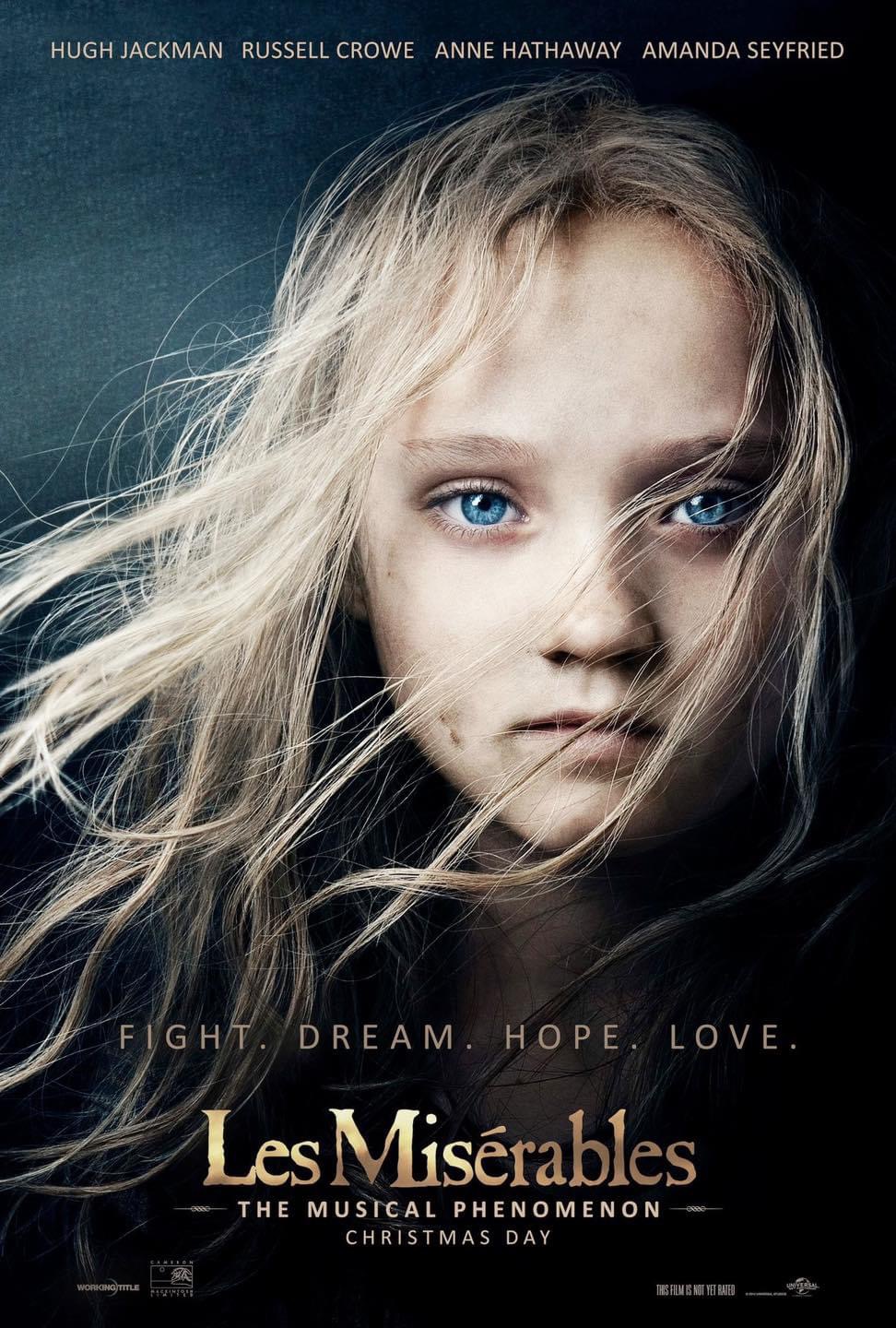Les Misérables (2012)

Les Misérables (2012), directed by Tom Hooper, is an adaptation of the beloved 1862 novel by Victor Hugo and one of the longest-running stage musicals. The film’s ambition lies not only in translating the grandeur of the story, but in finding a cinematic form for its musical elements. With a star-studded cast including Hugh Jackman, Russell Crowe, Anne Hathaway, and Eddie Redmayne, Les Misérables aims to combine epic spectacle with deeply personal storytelling.
Suggested videos for you:
Plot Overview
Set against the backdrop of 19th-century France, Les Misérables follows several characters through decades of political upheaval, poverty, and social struggle. At the heart of the story is Jean Valjean (Hugh Jackman), a former convict on the run, who tries to redeem his past by adopting the orphaned Cosette (Amanda Seyfried). He is relentlessly pursued by the dogged Inspector Javert (Russell Crowe), whose rigid sense of justice conflicts with Valjean’s newfound moral compass. Alongside these two are a variety of characters, including the tragic Fantine (Anne Hathaway), whose personal story becomes the emblem of the social ills of the time.
Performances
One of the defining features of the film is the way it uses live singing. Instead of prerecording the vocals and having actors lip-sync, Hooper had the cast sing on set, which lends an immediacy and rawness to the performances, though not without controversy. Hugh Jackman’s portrayal of Valjean is intense and filled with emotional sincerity, though his singing voice, at times, lacks the power of a seasoned Broadway star. Anne Hathaway’s performance as Fantine, particularly in her rendition of “I Dreamed a Dream,” was widely praised. Her portrayal is harrowing and intimate, offering a broken but fiercely human character who became one of the film’s emotional high points. Hathaway won both an Academy Award and a Golden Globe for her role.
Russell Crowe, however, was one of the film’s more divisive elements. His stoic and stone-faced portrayal of Javert contrasts with the impassioned and often melodramatic tone of the film. Some critics felt that his vocal limitations hindered his ability to fully embody the role, particularly in songs like “Stars” where the emotional depth of Javert’s character feels constrained by Crowe’s delivery.
Eddie Redmayne, as Marius, shines as a youthful idealist caught between love and revolution. His performance, both vocally and emotionally, is one of the film’s highlights, particularly in “Empty Chairs at Empty Tables,” where he conveys the weight of loss in the aftermath of battle. Amanda Seyfried’s Cosette, though a pivotal character, is less developed and serves more as a symbol of purity and innocence, which limits the depth of her role in comparison to others.
Visual and Cinematic Style
Visually, Les Misérables employs sweeping, majestic cinematography that captures the grandeur of both its settings and its emotions. From the desolate opening scene with Valjean pulling a ship into harbor to the vibrant, youthful rebellion on the barricades of Paris, the film seeks to be visually arresting. Hooper frequently uses close-ups during musical numbers, especially in emotional moments, emphasizing the actor’s raw expressions. This technique brings the audience into the intimate space of the performers, but for some, it also detracts from the broader epic scale of the narrative.
The use of CGI, particularly in the Parisian backdrops and larger set-pieces, is sometimes criticized for feeling too artificial. This has been a point of contention, as the film tries to marry the grandiosity of the musical stage with the immersive realism of film, sometimes succeeding, but other times coming off as overly polished.
Music and Soundtrack
The score, composed by Claude-Michel Schönberg, remains faithful to the original musical, and for fans of the stage production, much of the magic lies in hearing these familiar songs sung by Hollywood’s finest. However, the live-singing technique introduced a unique challenge for the cast, especially as many of the actors are not professional singers. This results in performances that are filled with raw emotion, but sometimes less polished vocally, particularly in numbers like “Bring Him Home,” which requires both emotional depth and vocal prowess.
The choice to keep many of the musical’s iconic songs intact, while cutting some others for pacing reasons, makes sense given the film’s runtime, but it might leave purists wanting. The music’s power is largely intact, though it’s clear the emphasis is more on the acting than perfect vocal performances, as seen in Hathaway’s tear-filled, trembling delivery of “I Dreamed a Dream,” where the emotional devastation far outweighs any technical imperfections.
Reception and Criticism
Les Misérables was a box office success, earning over $440 million worldwide, and it received largely positive reviews, though it was not without its detractors. The emotional intensity of the film, bolstered by Hathaway’s performance, moved many critics and audiences, while others felt the melodrama was overbearing. Some critics found Hooper’s reliance on close-ups and the rawness of the live-singing approach to be innovative, while others saw it as distracting from the spectacle.
At its heart, the film is both grandiose and intimate, offering a sweeping portrait of rebellion, faith, love, and redemption. However, its pacing issues, occasional vocal limitations, and a few weaker character portrayals prevent it from being a flawless adaptation.
Ultimately, Les Misérables is an ambitious work that translates the emotional power of the stage to the screen, while experimenting with the boundaries of what a movie musical can be. For those willing to overlook some of its technical and pacing imperfections, the film offers a moving and visually impressive interpretation of one of the greatest stories of human struggle ever told.
Conclusion
As an adaptation of both Victor Hugo’s novel and the stage musical, Les Misérables (2012) delivers a powerful, if uneven, cinematic experience. Tom Hooper’s decision to focus on raw emotion and the immediacy of live performances gives the film a visceral quality, but the execution leaves room for criticism. Despite this, the film remains a triumph in many aspects, with standout performances (particularly Hathaway’s), stunning visuals, and a score that continues to resonate with audiences. It’s a bold and impassioned take on a timeless story of injustice, love, and redemption.











